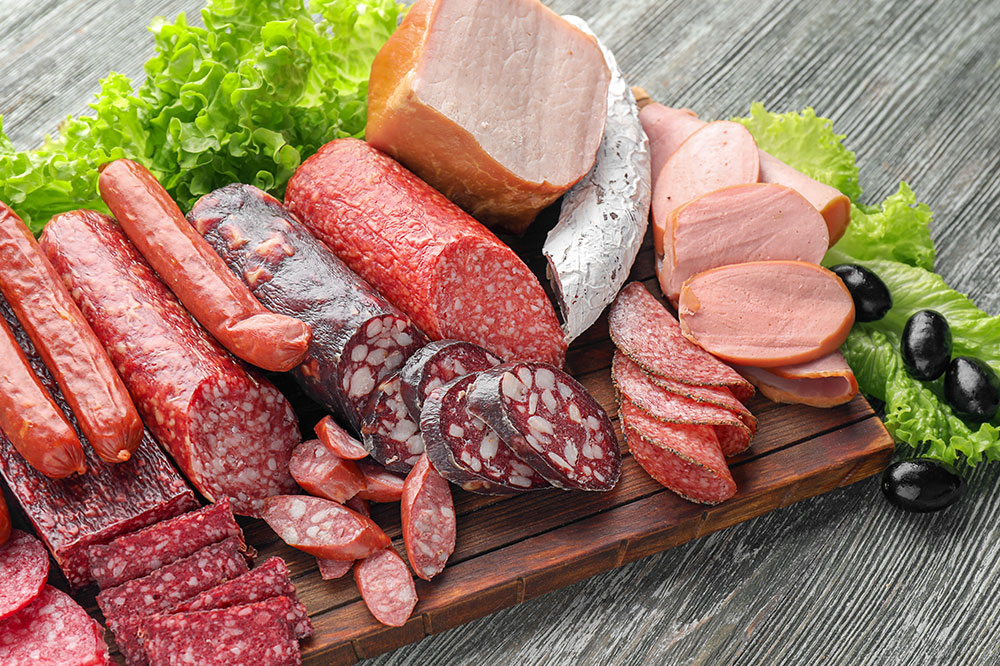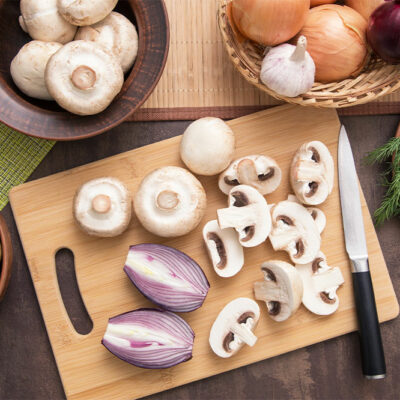13 foods that worsen breathing difficulties

The lungs are one of the most vital organs in the human body. Thus, they must remain in good shape to live a healthy life. However, many foods can unknowingly cause them harm and worsen breathing difficulties, whereas adding the proper nutrients to the food regime can help one breathe easier and minimize symptoms of conditions like asthma and COPD. Here are some of the worst foods for lung health that may worsen breathing difficulties:
Processed meat
Processed meats such as bacon, ham, hot dogs, sausages, and other lunch meats are often treated with additives and preservatives to add flavor and extend their shelf life. This can harm lung health and function. According to certain research, processed meats have been linked with an increased risk of chronic obstructive pulmonary disease (COPD), which may cause breathing difficulties. Additionally, processed meats also contain sodium nitrite, a known carcinogen that can increase one’s susceptibility to lung cancer.
Vegetable oil
Vegetable oils are used in most households to cook food. However, certain oils, such as canola oil, soybean oil, corn oil, sunflower oil, grapeseed oil, and safflower oil, can be dangerous for the lungs. This is because they contain unhealthy fats that can lead to heart disease, increased inflammation, and excessive mucus production, which may impact one’s breathing.
Sugar
Sugar has been linked to increased mucus production in healthy people as well as those with asthma. In addition, people with asthma were found to have a greater reaction to sugar, suggesting that it may play a role in worsening the condition and causing breathing difficulties.
Carbonated beverages
Carbonated beverages have been linked to an increased risk of developing asthma in adults and children alike, which can cause breathing problems. The drinks are also loaded with sugar, which may exacerbate mucus production and worsen the strain on one’s lungs.
Bread
Bread has been linked to several breathing problems, such as an increased risk of asthma, wheezing, chest tightness, and shortness of breath. Furthermore, consuming more than two slices of bread daily has also been linked to a higher risk of chronic rhinosinusitis with nasal polyps.
Eggs
Although eggs are a great source of proteins and nutrients like selenium, some researchers believe that they can increase mucus production in the body. This is because eggs trigger histamine release in the body, which in turn sets off mucus production. However, this may also be due to an immune response to ovalbumin, which may be an allergen for some. Not all egg consumption is bad, but if one experiences problems with mucus, it may be advisable to limit one’s daily intake.
Corn
Corn is a popular food item and an important part of many cuisines around the world. Although it is considered to be quite healthy, many experts believe that it can trigger immune and respiratory problems due to its mycotoxin content. According to one study, corn consumption was also associated with more sneezing, itching, runny nose, and an increased likelihood of an asthma attack in some people.
Sodium
Sodium causes fluid retention, which has been linked with an increased risk of pulmonary hypertension. It may also contribute to the development of chronic bronchitis. In the short term, excessive sodium intake causes inflammation in the body, increasing mucus production and adding to breathing difficulties.
Dairy
Although dairy is a great source of calcium, it has also been linked to increased production of mucus in the respiratory tract. Dairy products like cheese can also increase histamine levels in the body, thereby increasing airway inflammation and mucus production, leading to difficulties during breathing.
Fried foods
Fried foods are rich in unhealthy fats, which can increase inflammation in the body. They also contain trans fat, an unsaturated fat that is produced during the hydrogenation of oil. These are extremely harmful to one’s health and can increase bad cholesterol in the body, increasing the risk of inflammation, heart disease, stroke, and diabetes. They can also damage alveoli in the lungs, and release more oxygen into the bloodstream, making breathing difficult.
Dried fruits and vegetables
The drying process of fruits and vegetables compromises their nutrient content. These foods are also high in sulfites, which can impact lung health. It is safer and healthier to opt for fresh fruits and vegetables, instead of the dried variants.
Vinegar
Vinegar is a type of fermented food. During the fermentation process, it develops a high amount of sulfites which can worsen respiratory symptoms. Some vinegar-rich foods include sauces like ketchup, salad dressing, marinades, and pickled fruits and vegetables. One must be mindful of their vinegar consumption, especially when they suffer from lung conditions.
Shellfish
Shellfish such as shrimp, lobster, and prawns contain high levels of purine, which converts to uric acid in the body. This can lead to lung inflammation and increase the risk of conditions like COPD. It is also a common allergen that can cause anaphylaxis, symptoms of which include swelling of the airways, difficulty in breathing, and decreased blood pressure levels. Thus, those with asthma or a high risk of COPD must consider other protein sources to maintain their lung function and health.
Tips to make eating easier with lung conditions
Breathing problems may also leave one feeling too tired to eat. However, eating well is important for building immunity and fighting infections. Here are some tips that may help one eat better:
Clean the lungs an hour before eating by doing deep, controlled coughs, lying down to drain the mucus, tapping on the chest, or using an inhaler.
Rest before every meal to conserve energy to eat.
Sit up straight while eating to make space for the lungs and diaphragm to expand.
Those who use a cannula must continue using it during a meal as well. This provides the body with the oxygen required during the digestive process.
Avoid overeating to give the lungs and diaphragm more room to breathe.
Divide a big meal into smaller portions.
Eat and chew slowly to allow the body the oxygen it needs.


